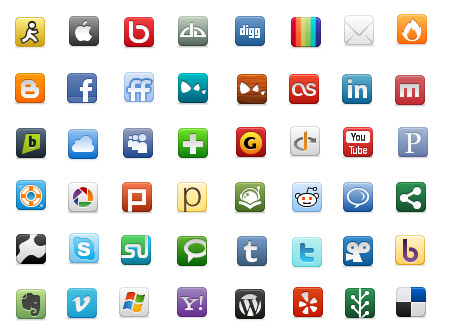Get rid of worthlessness

Thanks to them, you seem popular, and your material will magically be distributed on social networks - the like, retweet and +1 buttons occupy an important place on almost any page on the World Wide Web. Thus, almost every major site and global brand advertises Twitter and Facebook for free. But do these buttons really work? It is hard to say. What is known for sure - these magic buttons advertise their own brands. And the fact that thanks to them you can look a little desperate. Not too desperate, but very little.
Do not remind me about Twitter
Users do not come from nowhere. We do not go to your page to hurry to talk about you in social networks just because you have these buttons. We find content on Facebook, Twitter, Google +, Pintereste, etc., and not vice versa.
- Those who use a social network to search for content usually start their web journey from there and end there. We do not need to be reminded which network we use along the way. We know. We came from there;
- For those who do not use social networks, these buttons are completely useless;
- If the reader is too lazy to copy and paste the link, adding a few words about the content, then this is not due to the lack of buttons.
Some probably use these buttons. Perhaps even a lot of them. Maybe you are one of them, and I think that I am absolutely wrong. Perhaps someone should make a serious study of this issue to find out for sure. I am not against it all. But what I know for sure is that most of those who know how to use buttons know, also, how to share a link:
')
“We removed the Facebook button and traffic grew from there. The reason: instead of “likes” under the article, readers posted them on their pages. ” - @smashingmag
If you have great content, users will read it and discuss it online. This is what you really want. You do not need useless +1, it is more important that users discuss your content on their own.
And what's wrong with them?
What do thousands of retweets and likes under each Mashable article mean? It is unlikely that the number of tweets says how interesting the article is. Rather, they show how well they are represented in social media.
Do not worry, these buttons will disappear. Previous Wave Delishes and Digg & Co. gone, Facebook and Twitter and Google + may disappear or survive, but the buttons will disappear for sure. Or do you actually think that in 10 years they will still be on every page? No, right? All because you, as a user, already know that they are not so good. So why not get rid of them right now? Because "there is nothing bad in them"? Are you sure?
- Have you heard of surveillance ?
- You do not mind less fast loading or intermittent scrolling ?
- If you are unpopular, then thanks to the buttons you will look like a dog waiting for crumbs from the table. You can write amazing articles and have a bunch of stuff, but still get just a few retweets and likes. Yes, this is not fair, but it will. If you are known you will receive attention, even for mediocrity. If you are not known, no matter how good you are, at first there will be no such effect. The button that says “2 retweets” will be interpreted as: “This is not so cool, but please read it? Oh please?"
- If you are known, but your text is not so good, the buttons can cause envy and a sense of injustice (yes, people are envious). “1280 retweets and you want more? “No, that's enough for you.” When I started writing this article, I was going to quote a great job on signaling explaining why “content is important, not icons” - and as a result I discovered that they themselves added buttons like retweet;
- In an environment filled with advertising and self-PR, you need to avoid every pixel with garbage and the requests “press me!” If possible. Less trash, fewer requests, less advertising allow you to focus better, and the user is more likely to read your material.
Buttons of social networks are not a strategy in a social environment, even if they are often represented as such. Excellent content, serious development of the network and the constant involvement of users - this is the way to present yourself. Adding these useless buttons will do nothing. Social media is not so simple and there is no universal trick. People usually use a secure rather than a winning strategy. Well, safe strategies rarely work.
© Oliver Reichenstein
Source: https://habr.com/ru/post/145412/
All Articles